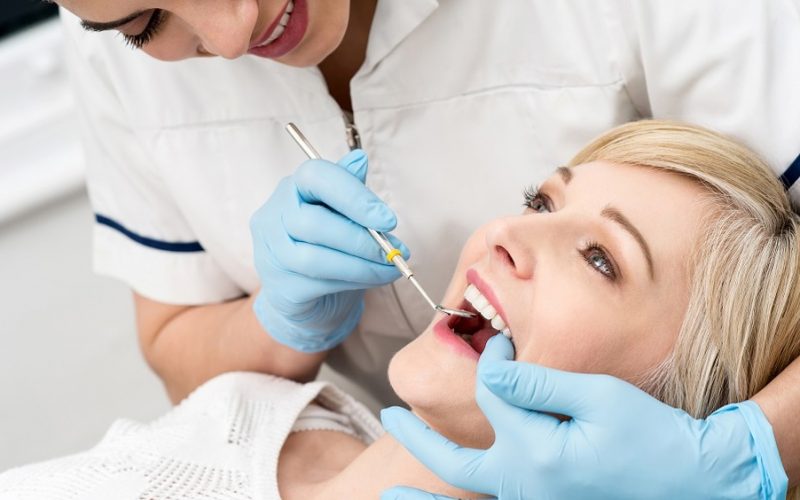Oral health is an important part of overall well-being, and neglecting your dental care can have grave consequences in the time to come. So, having a dental problem that erupts during a busy and stressful day as a university student can be very disturbing. A visit to the dentist can be a luxury some students can’t afford, so many students might be contemplating if university students pay for the dentist.
Toothaches, chipped teeth, and occasional wisdom tooth eruptions are some of the dental dramas that can strike at any time, amidst a lecture, social commitments, or even right in the middle of an exam. Having the freedom to see a dentist while on campus anytime, without breaking the bank, is one of the best experiences a student can have.
This writing will clearly explain to you whether university students actually pay for dental care, the cost of dental treatment in the university, and viable options if you are not qualified for free university dental treatment.
Table of contents
- Do University Students Have Access to Dental Services?
- Do University Health Plans cover Dental Services?
- Do Uni Students Pay For The Dentist?
- Do Uni Students Get Free Prescriptions?
- How Do Students Find Out About Their Dental Coverage?
- Can Students Use Off-Campus Dentists With Their University Health Plan?
- What If Student Already Has Personal Dental Insurance?
- FAQs – do uni students pay for the dentist
- Conclusion
- References
- Recommendations
Do University Students Have Access to Dental Services?
Many universities recognize the importance of students’ health, including oral health. As a result, they often provide access to dental services right on campus or through affiliated clinics.
You can conveniently schedule appointments for routine check-ups, cleanings, and even minor dental procedures without exceeding your academic commitments.
These services are designed to cater to student’s specific needs, ensuring that students can maintain good oral hygiene and address any dental concerns that may arise during their time at university.
It’s worth checking with your university’s health centre or browsing through their resources to discover the extent of dental services available to you as a student.
Do University Health Plans cover Dental Services?
Dental coverage within university health plans can vary widely depending on the institution and the specific plan you’re enrolled in.
Some university health plans include dental coverage as part of their comprehensive package, aiming to offer students a holistic approach to healthcare.
This coverage often encompasses routine dental check-ups, cleanings, and basic preventive services. However, it’s important to note that not all university health plans automatically include dental coverage.
Some universities might offer dental insurance as an optional add-on for students to enrol in for an additional fee.
Before assuming what’s covered, it’s highly recommended to carefully review your university’s health plan documentation, including the coverage details, any potential limitations, and whether there are any out-of-pocket expenses associated with dental services.
Do Uni Students Pay For The Dentist?
Yes, university students often need to pay for dental services. Still, the specifics can vary based on factors such as the university’s policies, the student’s health plan, and the type of dental care needed.
Some universities offer comprehensive health plans that include dental coverage as part of their services, covering routine check-ups, cleanings, and basic procedures. In such cases, the cost is typically included in students’ overall health plan fees.
However, not all universities provide dental coverage in their health plans. Unfortunately, most dental care isn’t free, even under the NHS (National Health Service), and students have no automatic exemption. That said, there are situations in which students can be eligible for free dental treatment:
- If you’re under 18
- If you’re under 19 and in full-time education
- If you’re pregnant or have had a baby in the last 12 months
- If you stay in an NHS hospital and the hospital dentist carries out your treatment, you may have to pay for your dentures or bridges.
- If you receive (or you’re under 20 and dependent on someone who receives) income support or Jobseeker’s Allowance
- If you’re under 26 and registered with a Scottish dental practice
If none of the above applies to you, you might still be able to get free dental treatment by applying to the NHS Low Income Support Scheme. Remember that you’ll have to register with a local dentist practice, similar to a GP. However, it’s crucial to determine whether you’re signing up as a private or NHS patient.
Be aware that some dental practices might have long waiting lists for NHS patients or might not be accepting NHS patients at all. If you register as a private patient instead, you’ll likely have to pay significantly more.
Therefore, understanding your eligibility and available options is key to effectively managing your dental care expenses.
Also, read: What to Major in to Be a Dentist in 2024 | Full Guide
Do Uni Students Get Free Prescriptions?
While visits to the GP (General Practitioner) are generally free for university students, it’s important to note that prescriptions may not be included in that free healthcare package.
Prescriptions are entirely free for students registered with a GP in Scotland, Northern Ireland, or Wales. This applies to local students and students from England studying in and registered at a GP in these countries.
However, if you’re a university student in England, you may need to pay for prescriptions unless you meet certain eligibility criteria for free NHS prescriptions. Here’s who might be eligible for free prescriptions in England:
- Individuals aged under 16 or 60 and over
- Students aged 16–18 who are in full-time education
- Those who are pregnant or have given birth in the past 12 months
- Individuals with a medical exemption certificate (MedEx) for specific medical conditions or ongoing physical disabilities
- People receiving income support, Jobseeker’s Allowance, or those under 20 and dependent on someone receiving these benefits.
Knowing these criteria is important to understanding whether you qualify for free prescriptions in your region. If you’re not eligible, you’ll need to budget for prescription costs so you’re prepared when you need to pick up prescribed medications.
How Do Students Find Out About Their Dental Coverage?
Students should begin by checking their university’s official resources to find out about their dental coverage.
This might include visiting the university’s health centre website, which often provides detailed information about health insurance plans, including dental coverage.
Additionally, students can consult the university’s student services office for clarification. The university’s official documentation, such as health plan brochures and policy guides, can also offer insights into the extent of dental coverage.
If questions remain, contacting the university’s health insurance or benefits department can provide personalized information.
Understanding the coverage limits, in-network dentists, and any potential out-of-pocket expenses is crucial for making informed decisions about dental care while studying.
Can Students Use Off-Campus Dentists With Their University Health Plan?
Students can often use off-campus dentists with their university health plan, but it’s essential to understand the plan’s specific terms.
Some health plans offer flexibility, allowing students to visit dentists outside campus or university-affiliated clinics.
However, there might be advantages to using in-network dentists, like lower out-of-pocket costs. If you choose an off-campus dentist, you may need to pay upfront and seek reimbursement through the plan’s claims process.
It’s advisable to review your health plan documentation or contact the plan’s provider to confirm whether off-campus dental services are covered and to what extent.
This ensures you make the most cost-effective decisions for oral healthcare needs.
What If Student Already Has Personal Dental Insurance?
If a student already has personal dental insurance, they have a couple of options. They can rely on their existing dental insurance for coverage and use it for their dental needs, both on and off campus.
Alternatively, they can assess their university’s health plan and compare it with their insurance.
Depending on each plan’s coverage, cost, and benefits, they can decide whether to keep their insurance, opt for the university’s plan, or use both to maximize coverage.
It’s important to understand the specifics of both insurance policies, including network dentists, coverage limits, and potential coordination of benefits, to make an informed decision that best suits their dental healthcare requirements.
FAQs – do uni students pay for the dentist
Many plans cover emergency dental care, but it is crucial to understand the definition of “emergency” and the associated coverage.
Depending on the insurance policy, students might be able to continue using their family dentist even if they’re not part of the plan’s network.
Students should know the potential costs they may need to cover if they exceed the plan’s coverage limits.
Coverage might not be automatic; some universities require students to enrol in the dental plan actively.
Comprehensive information about dental coverage can be found on the university’s official website, health centre, or student services office.
Dental care is often not free for university students. While some services might be covered under health plans, many students may need to pay for dental treatments unless they meet specific eligibility criteria or have separate insurance.
Conclusion
Taking care of your teeth as a student might not be cost-effective, but it will save you a lot of unnecessary troubles that can impede your effectiveness as a university student. Knowing your dental care options as a university student will help you navigate the high cost.
So, even if you don’t qualify for free NHS treatment, exploring student discounts, university healthcare services, or alternative payment plans can make it more affordable for you. These options will ensure you prioritize your oral health and avoid potential dental problems in the future.
References
- savethestudent.org – How to get cheap healthcare and dentistry
- thinkstudent.co.uk – Do Uni Students Pay For Dentist?
- thedentalcenterlondon.com – Do Students Have to Pay for the Dentist?






